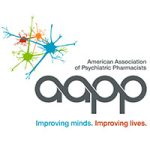Medication-induced sexual dysfunction occurs when there is a problem that leads to frustration with sexual activity or performance.
Symptoms of sexual dysfunction for males may include:
- Loss of sexual interest or desire
- Not being able to obtain or maintain an erection
- Painful, long-lasting erection (rare)
- Trouble having an orgasm
Symptoms of sexual dysfunction for females may include:
- Loss of sexual interest or desire
- Painful sex
- Trouble having an orgasm



